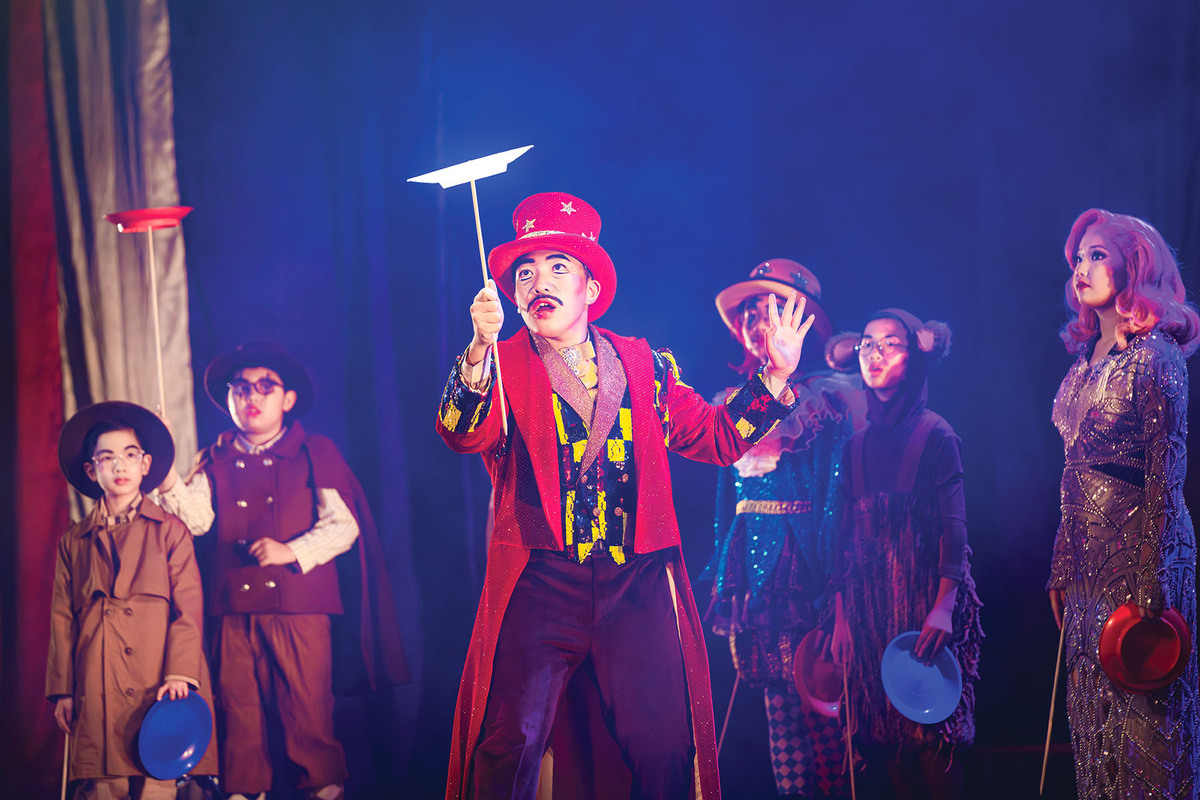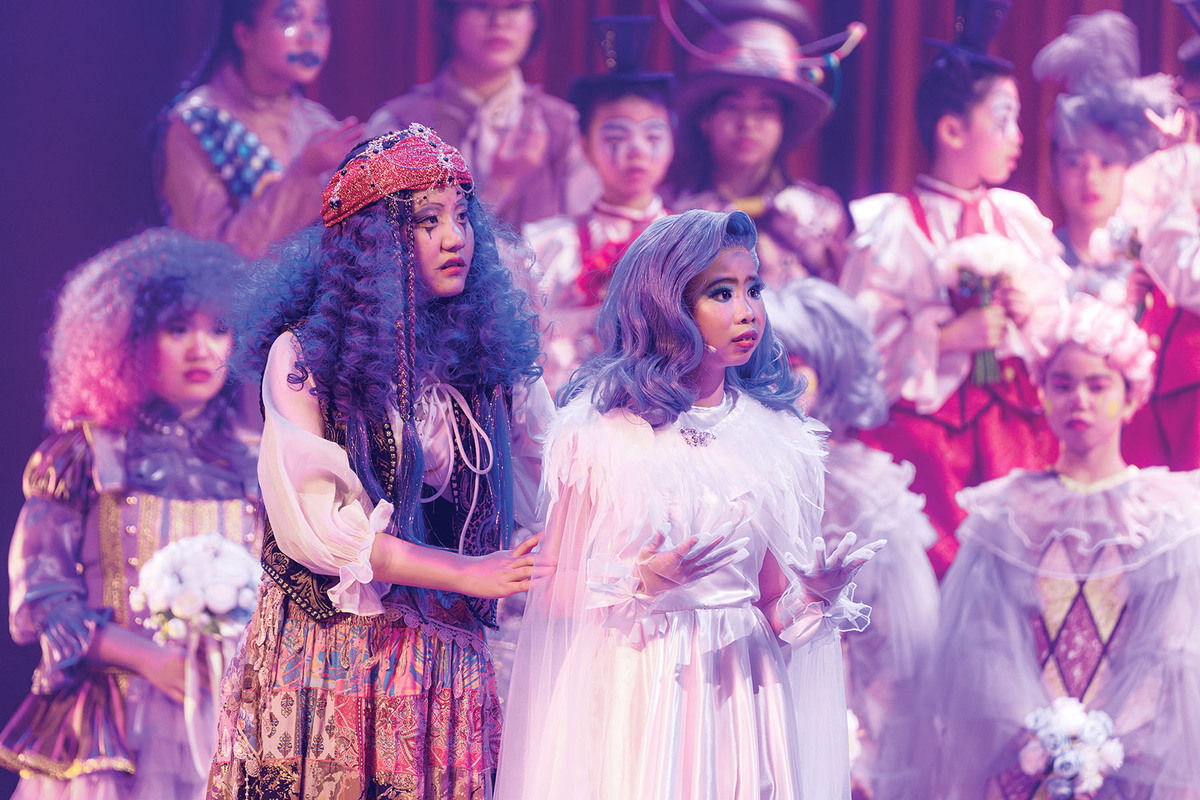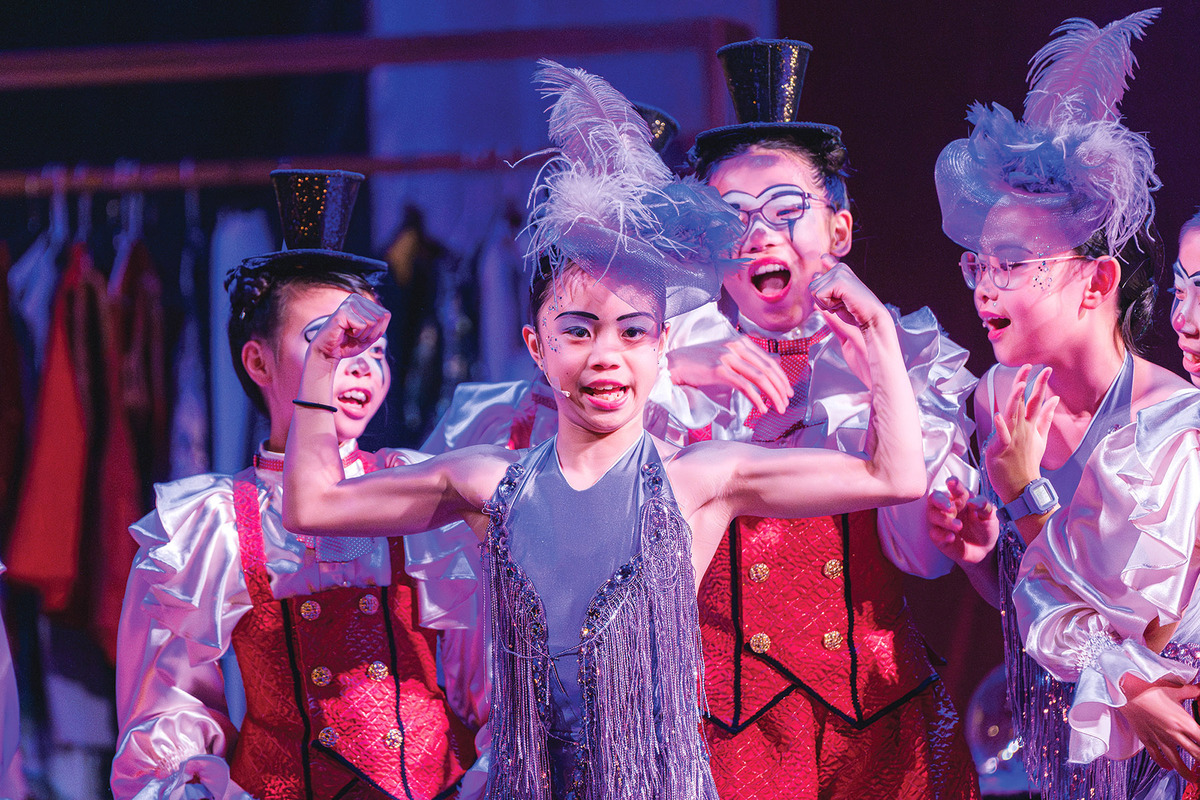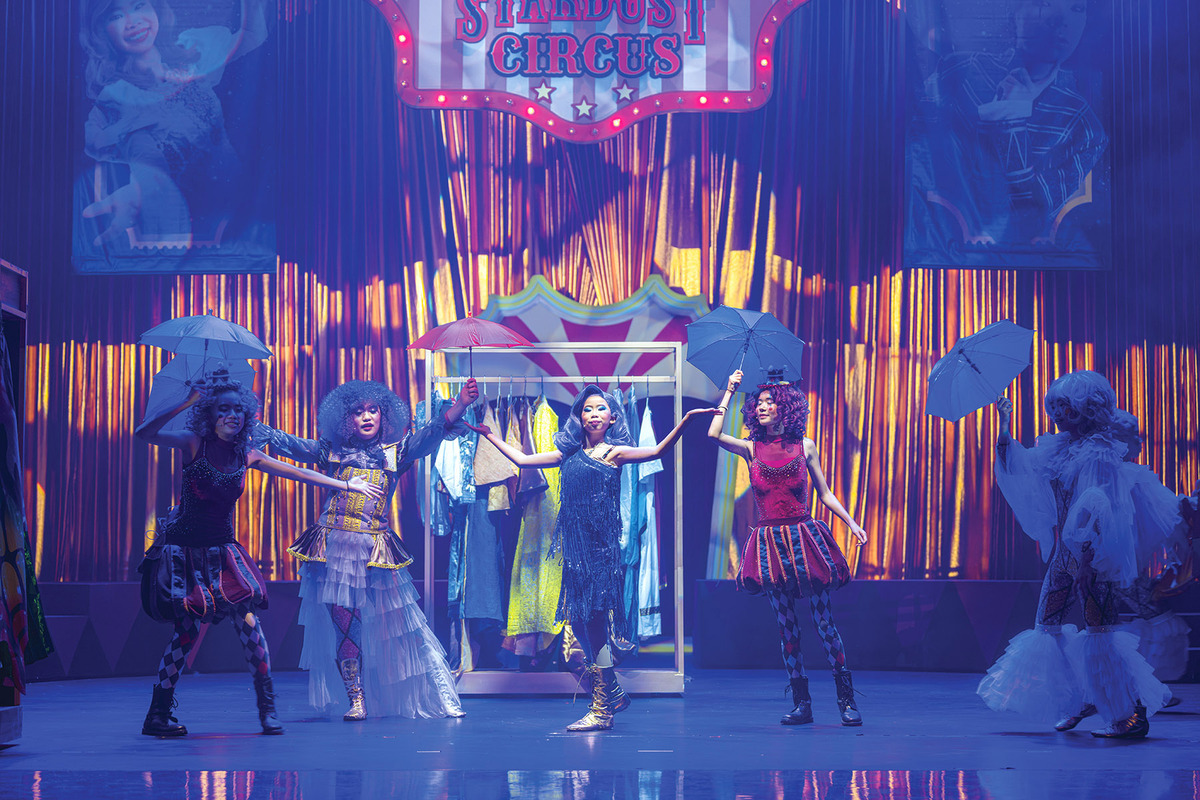Metamorphosis in drama
Theatrical performances have helped young people find their voices as virtuosos and build self-worth and confidence. Wang Yuke writes.


Inspire to transform
Founded in 2003, S4A has harnessed the power of drama to nurture Hong Kong youth's self-confidence, creativity and English language skills through Shakespearean plays and theatrical productions. The organization has witnessed remarkable transformations — withdrawn souls becoming socially capable, self-conscious children growing into self-assured individuals, those with learning challenges shedding labels, and non-English speakers commanding the stage with assuredness.
It's noteworthy that S4A's drama performance has been transformed into a level playing field for all, fostering inclusivity. "Around 70 percent of our participating students come from Band 3 schools or lower socioeconomic backgrounds," says Peaker.
In the young, jaunty world of drama, the most heartening revelation for participating teens is the transcendence and enlightenment that performance brings, moving the needle in their formative years and beyond. Arthur Chan, who signed up for S4A's Shakespeare production eight years ago when he was 12, now studies at the prestigious London School of Economics and Political Science. He credits his academic success to the unflinching belief channeled throughout the drama program, rooted in the idea that "you can be the best, trust your aptitude, and dive in", he enthuses with a spark flickering in his eyes.

William Shakespeare, often revered as the "Father of Modern English Literature", has long been held in awe from antiquity to today. His towering intellect and sophisticated wisdom can sometimes cast an image of inaccessibility, with many perceiving his works as formidable, believing they are beyond their intellectual reach. However, to Peaker, it is a sheer misconception.
"If we go back to Shakespeare's time, the stories he narrated were romantic, comedic or tragic, mirroring the everyday lives of the people," says Peaker. That, he suggests, is precisely why Shakespeare's masterpieces remain relevant today — they echo the universal life dynamics of laughter, sadness and love. Only if we cast aside the pedestal that we have placed Shakespeare on, can people of all ages today be viscerally attuned to and identify themselves with his celebrated stories, says Peaker. To him, Shakespeare wrote for average people, with a timeless appeal that evokes the past, resonates the present and projects the future.
Dispelling the aura around Shakespeare and democratizing his literature, as well as the adapted plays, is by no means an attempt to diminish the genius of the master. Instead, when people approach Shakespeare on more equal terms, they find themselves deeply connected to his works, allowing his literature to realize a more enduring reach and influence, says Peaker. Bringing his classic stories to life through adolescents' fledging emotions and unadorned voices could be the best antidote to the "over-intellectualization "of Shakespeare's literature, he adds.

To strike the right note for Much Ado About Nothing — a comedy infused with witty banter and sharp humor — the August performance by S4A's youngsters was set in the whimsical world of a circus. The setting alone packed the play with the playful exuberance that Shakespeare intended. Most importantly, it was reimagined for a sense of relevance and identification to children.
If it's accessible to children, it shouldn't be a steep learning curve for most people, making it a great equalizer of Shakespeare's works.
The circus setting also allows more freedom with costumes and the incorporation of circus acts like juggling, which complement the quippy wit and comedic plot of the story, explains Peaker.
More than just a drama, the S4A iteration of Much Ado About Nothing riffs on the musical numbers by female artistes like Beyonce, Jennifer Lopez, Mariah Carey and Madonna, rendering the show a sensorially expressive delight. This musical interpretation, according to Peaker, stems from two key reasons. The musical addition "allows more opportunity for the entire cast to perform together on stage", veering away from the avalanche of monologues in the original Shakespeare story, he says. The music also furbishes the linguistically dense performance with more expressiveness, which is "the whole point of Shakespeare's play — it's all about expressing yourself," he adds.

The adaptations are central to the performance, not only to align with Asian culture and heritage, but also to suit the emotional and intellectual capacities of the young actors. For example, the Gala Production 2018 of The Tempest was set in Hong Kong. In addition to shortening the runtime, the young actors were guided through the labyrinth of words that might otherwise seem esoteric to them. "The children playing in Much Ado About Nothing are predominantly from working-class backgrounds, and some attend Band 3 schools, meaning they have limited resources for learning English. Plus, a 12-year-old may not fully grasp the concept of love that the story revolves around," Peaker explains. "But that's Shakespeare's magic — they don't need to fall in love with anyone but the words!"
Getting the hang of Shakespeare's singular language flattens the young actors' emotional learning curve, easing them into the philosophical and emotional plane where his plays stand. Taking Shakespeare's language in their stride, they become more "demonstrative", says Peaker, because they embrace and engage with the story with open arms and hearts.
The performance on stage thrives on the concerted, synchronized efforts of the entire cast — a principle especially relevant to the S4A production, where none of the young actors is a virtuoso, and their English and acting abilities vary widely. The idea that teamwork is greater than the sum of its parts is a valuable lesson the participants have come to grasp in their own ways. "Every actor has to remember their lines. But, if they only focus on their part, ignoring the lines and emotions of the person they're interacting with, the performance would be stilted," says Peaker, reflecting on how the actors have learned the hard way. He notes that they eventually feel the need to break out of their own bubble of "script and ego", realizing that if they're single-mindedly preoccupied with their own share of work, the entire play would crumble due to the lack of emotional cohesion.

No one is expected to upstage others in S4A, Peaker adds. "Everyone's equal, whether playing a lead role or a cameo. Everybody stands on the same ground, striving for a common goal — conveying a story written by Shakespeare in a way that resonates with a modern audience."
Improving young people's English is just the tip of the iceberg of the rewarding bundle they gain. Alongside their trek through the steep learning curve of sophisticated English expression and delivery, they gain the ability to learn and build confidence in mastering new skills, creating a profound ripple effect permeating through other slices of their life.
"Excelling at one thing sparks their overall confidence in other things," Peaker says. "I remember once I got a letter from the father of a student. He said, initially, he was hesitant about his son's audition: 'I didn't want my son to be upset again (after some setbacks in the past). He might find it too daunting.' But his son insisted, snagged a major role and delivered a stellar performance. The father said after the performance with flying colors, not only did his son's English take off, all his other subjects began to look up too!"
Remembering the verbose, lengthy script like the back of their hand is nothing short of Herculean for the young, inexperienced actors, but the "built-up confidence, pride in being part of the team" and the self-talk of "I can't let my team down "motivated everyone to nail it in rehearsal and on stage, says Peaker.























